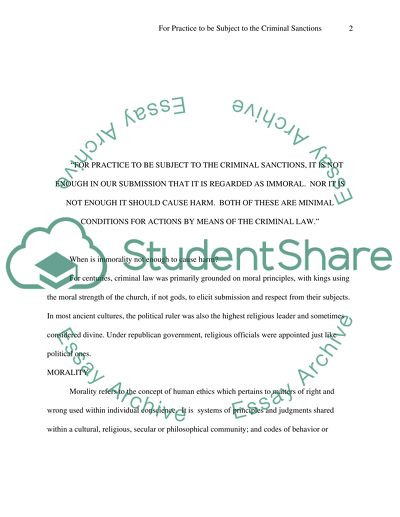Cite this document
(“Criminal Law: moral [principles Essay Example | Topics and Well Written Essays - 2000 words”, n.d.)
Retrieved from https://studentshare.org/miscellaneous/1502478-criminal-law-moral-principles
Retrieved from https://studentshare.org/miscellaneous/1502478-criminal-law-moral-principles
(Criminal Law: Moral [principles Essay Example | Topics and Well Written Essays - 2000 Words)
https://studentshare.org/miscellaneous/1502478-criminal-law-moral-principles.
https://studentshare.org/miscellaneous/1502478-criminal-law-moral-principles.
“Criminal Law: Moral [principles Essay Example | Topics and Well Written Essays - 2000 Words”, n.d. https://studentshare.org/miscellaneous/1502478-criminal-law-moral-principles.


